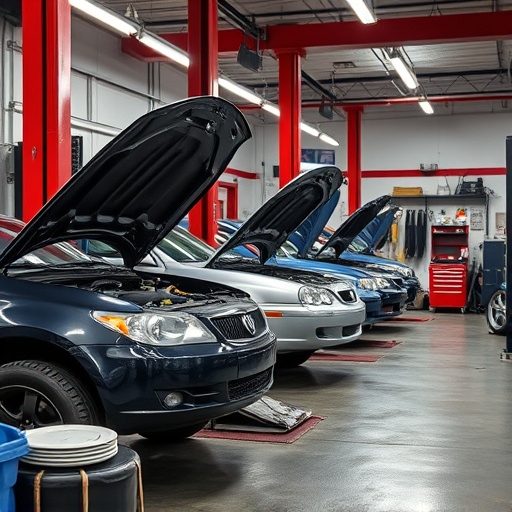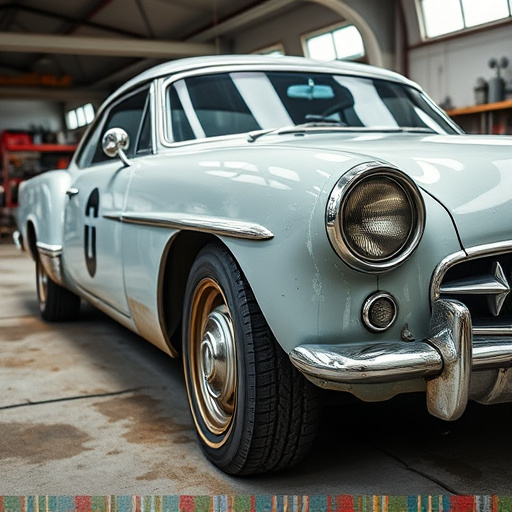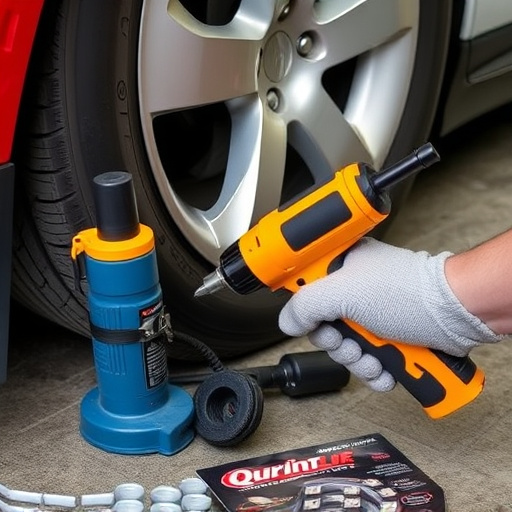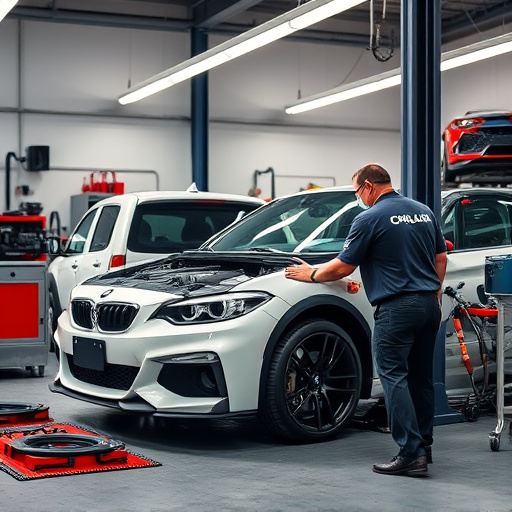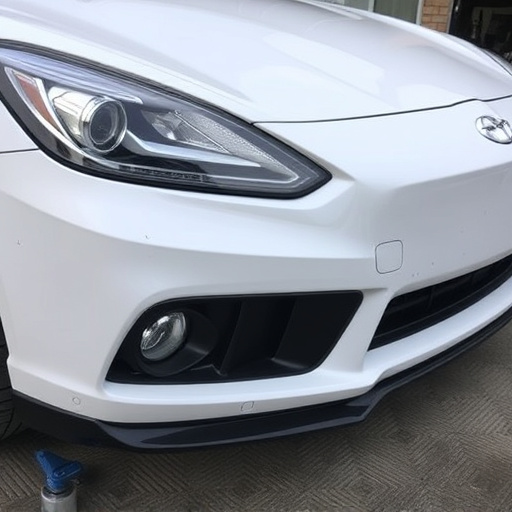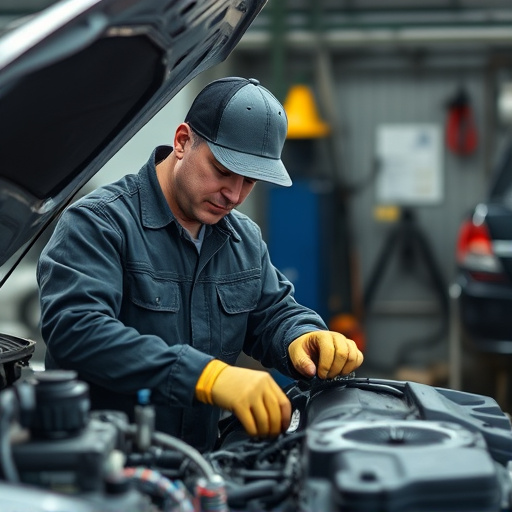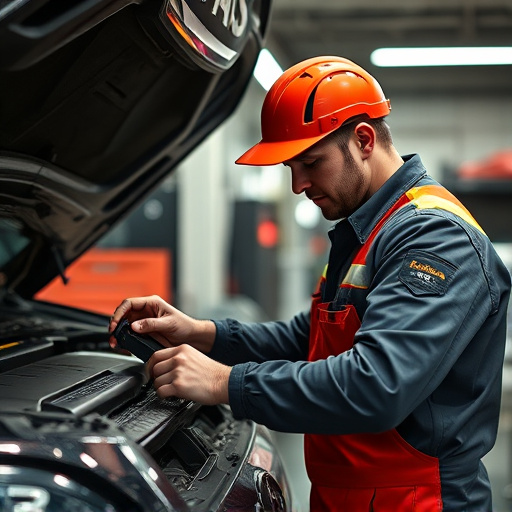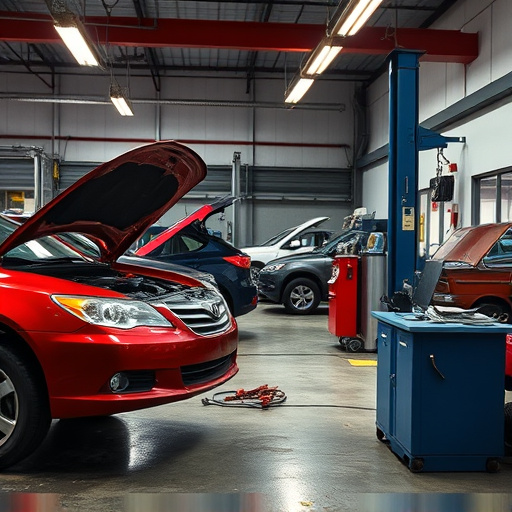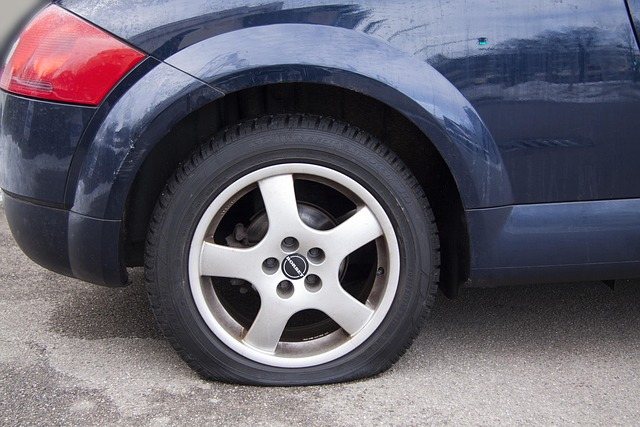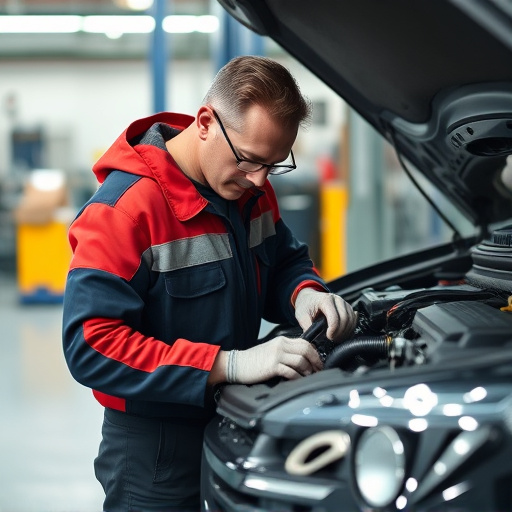Eco-friendly collision repair is a comprehensive, sustainable approach that minimizes environmental impact throughout vehicle bodywork processes. By using eco-conscious solvents, recycling materials, and adopting low-VOC paint & efficient techniques (like paintless dent repair), these shops reduce chemical contamination, energy consumption, and emissions, protecting ecosystems and contributing to a greener future for both the automotive industry and our planet. This green approach improves air quality, conserves water, and reduces the demand for new raw materials.
Eco-friendly collision repair is transforming the automotive industry, offering a greener alternative to traditional auto body shops. This innovative approach not only reduces waste but significantly minimizes pollution, contributing to cleaner air and water. By adopting sustainable practices, collision centers can lower their environmental footprint, from using eco-conscious materials to implementing efficient waste management strategies. Discover how these eco-friendly methods are revolutionizing the industry and ensuring a brighter, more sustainable future for both vehicles and our planet.
- Reducing Pollution at Every Step: Eco-Friendly Practices in Collision Repair
- The Environmental Impact of Traditional vs. Green Auto Body Shops
- A Sustainable Future: Benefits for Air and Water Quality Through Eco-Conscious Repairs
Reducing Pollution at Every Step: Eco-Friendly Practices in Collision Repair
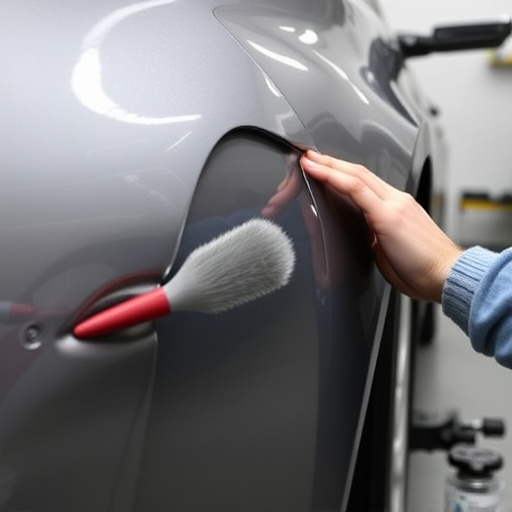
Eco-friendly collision repair goes beyond just using sustainable materials; it encompasses an entire approach to minimizing environmental impact at every stage of the vehicle bodywork process. From initial assessment and disassembly to final restoration, each step is meticulously designed to reduce pollution and preserve natural resources. For instance, utilizing eco-conscious solvents for degreasing and cleaning helps prevent harmful chemicals from contaminating air and water sources, a common issue in traditional car collision repair.
Additionally, the practice encourages recycling and repurposing materials whenever possible, particularly in classic car restoration projects. By salvaging usable components and parts from damaged vehicles, eco-friendly collision repair facilities can significantly decrease demand for new raw materials, thereby reducing energy consumption and associated emissions. This holistic approach not only contributes to cleaner air and water but also fosters a more sustainable future for both the automotive industry and our planet.
The Environmental Impact of Traditional vs. Green Auto Body Shops
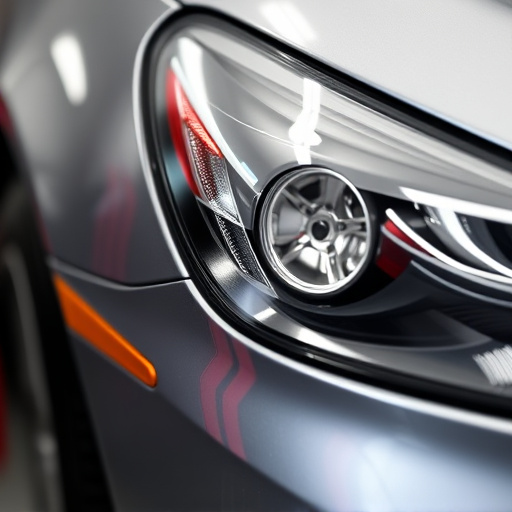
In the traditional collision repair process, auto body shops often rely heavily on harmful chemicals and energy-intensive practices. The use of toxic car paint and solvents during repairs releases pollutants into the air and water systems, contributing to environmental degradation. These chemicals can have severe consequences for local ecosystems and human health.
On the other hand, eco-friendly collision repair shops adopt sustainable practices such as using low-VOC (volatile organic compound) car paint, which minimizes pollution. They also implement efficient frame straightening techniques and focus on bumper repair methods that reduce waste. By opting for green alternatives in processes like paint repair and body work, these shops significantly lower their carbon footprint, ensuring cleaner air and water for communities surrounding them.
A Sustainable Future: Benefits for Air and Water Quality Through Eco-Conscious Repairs
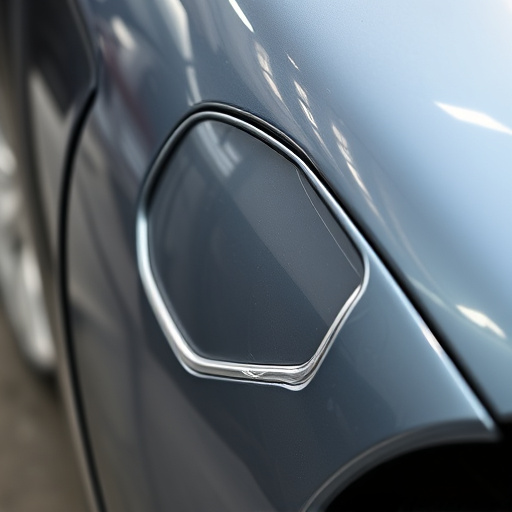
The future of transportation lies in sustainability, and eco-friendly collision repair is at the forefront of this revolution. By adopting green practices, car body shops and vehicle repair centers can significantly reduce their environmental impact. One of the key benefits is the improvement of air quality. Traditional paint and chemical processes often release harmful fumes and pollutants into the atmosphere, contributing to smog and respiratory issues. Eco-conscious repairs, however, utilize low-VOC (Volatile Organic Compound) paints and advanced techniques like paintless dent repair, eliminating these hazardous emissions.
Furthermore, water conservation is another critical aspect. Many conventional car body shops rely on extensive water usage for cleaning, painting, and finishing processes. By implementing eco-friendly methods, such as water recycling systems and efficient cleaning solutions, vehicle body shops can dramatically cut down their freshwater consumption. This not only ensures cleaner water sources but also reduces the energy required for water treatment, creating a more sustainable cycle for both air and water quality.
Eco-friendly collision repair isn’t just a trend; it’s a necessary step towards preserving our planet’s resources. By adopting green practices, auto body shops can significantly reduce pollution and contribute to cleaner air and water. The transition from traditional to sustainable methods offers numerous environmental benefits, ensuring a brighter future for both the automotive industry and the environment. Embracing eco-conscious repairs is a powerful way to protect our ecosystems and create a more sustainable world.
